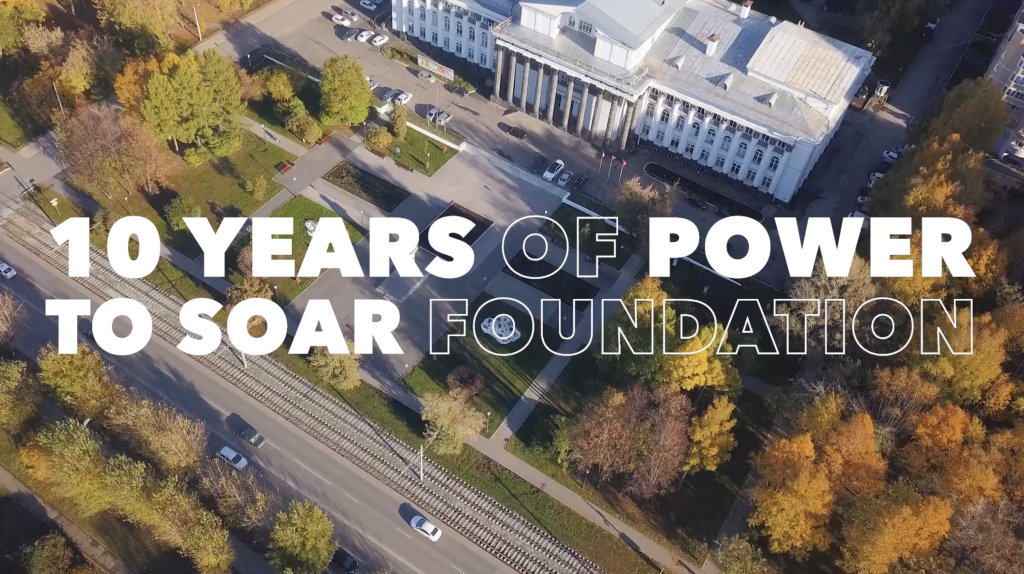Scholarships specifically designed for foster youth play a crucial role in bridging the financial gap and opening doors to brighter futures. These scholarships not only cover tuition but often extend support for books, housing, and even emotional development.
You’ll discover how organizations across the country are stepping up to fund these opportunities, ensuring that foster youth have access to the education they deserve. Whether it’s a community college or a university, these scholarships provide the necessary financial support to help foster youth thrive in their academic pursuits.
In this article, you’ll explore the various scholarships available, their eligibility criteria, and the impact they have on the lives of foster youth.
Key Takeaways
- Scholarships tailored for foster youth are essential in overcoming financial barriers to higher education, covering expenses such as tuition, books, housing, and personal development needs.
- National and state-level scholarships and tuition waivers, like those from the National Foster Parent Association and states that offer tuition waivers, provide significant support, helping foster youth to attend college without worrying about costs.
- Organizations like Power to Soar Foundation play a pivotal role by awarding scholarships, leading to high graduation and persistence rates among foster youth.
- Eligibility for these scholarships often includes criteria related to foster care experience, academic performance, and age, with application processes requiring documentation such as transcripts and recommendation letters.
- Additional financial aid resources, including federal and state aid programs like the Education and Training Vouchers (ETV), and private scholarships, further reduce financial stress for foster youth, enabling academic and professional growth.
Table of Contents
Understanding Scholarships for Foster Youth
Scholarships for foster youth play a crucial role in helping you overcome financial and emotional barriers to higher education. These scholarships often cover tuition, books, housing, and other necessary expenses, reducing the financial burden on you as you transition to college life. Given these considerations, they can vary based on criteria such as academic performance, extracurricular involvement, and personal essays that reflect your experiences and future goals.

State-Level Assistance
State governments often provide additional support through tuition waivers, which allow you to attend state public universities without paying tuition fees. These waivers can apply once other forms of aid, such as scholarships and federal assistance, have been processed. Approximately 35 states have established policies regarding tuition waivers for foster youth.
Additional Resources
Programs like Passport to Careers and State Work Study aim to help you prepare for college and gain valuable work experience. Passport to Careers offers financial assistance for education and apprenticeships, with a maximum annual award of $4,500. In contrast, State Work Study enables you to earn money while gaining career-related experience.
Understanding these resources ensures you’re informed and well-prepared to pursue higher education opportunities, helping you achieve a brighter future.
Types of Scholarships Available
Scholarships designed for foster youth play a critical role in providing access to higher education. These scholarships often cover tuition and fees, reducing the financial burden on students. Various scholarships cater to different needs, from state-specific options to national programs.
State-Specific Scholarships and Tuition Waivers
Many states offer specific scholarships and tuition waivers to support foster youth. Tuition waivers, available in about 35 states, allow eligible students to attend public universities without paying tuition fees. These waivers cover tuition costs remaining after other financial aids, such as scholarships and federal assistance, have been applied. State involvement ensures you can pursue an associate’s degree, bachelor’s degree, or certificate without tuition constraints, provided you complete your program within a designated timeframe.
National Scholarships and Grants
Nationally, several scholarships and grants exist to assist foster youth in pursuing education. The National Foster Parent Association Scholarships require a high school senior application, including an essay and recommendation letters, focusing on how foster care has shaped your educational goals. Family Fellowship Scholarships offer up to $12,000 annually over five years, covering expenses like tuition, books, and housing. For those adopted from foster care at age 13 or older, the All-Star College Scholarship provides up to $10,000 annually for college costs. These resources significantly impact your educational journey by reducing financial barriers and supporting your professional and emotional development.
How to Apply for Scholarships
Understanding how to apply for scholarships designed for foster youth is crucial for accessing educational opportunities. Scholarships for foster youth often come with specific eligibility requirements and a detailed application process.
Eligibility Criteria
Different scholarships target varied needs and circumstances. To qualify, review each scholarship’s specific criteria. Common requirements include:
- Previous foster care experience of at least 12 consecutive months.
- U.S. citizenship or residency.
- GPA benchmarks, such as a minimum 2.5 GPA for programs like the Family Fellowship Scholarship.
- Age limits between 18 and 23 years for certain opportunities.
Verify these conditions by checking the scholarship provider’s guidelines, as criteria can vary significantly.
Application Process
Successful applications demand proper documentation and adherence to set procedures. Here’s a typical process:
- Identify Resources: Research and find scholarships through organizations like Power to Soar Foundation, Foster Care to Success and the National Foster Parent Association.
- Prepare Documents: Gather essential papers such as high school transcripts and letters of recommendation.
- Submit Applications: Follow individual scholarship instructions carefully, submitting all required materials by stipulated deadlines.
Properly organizing your materials increases your chances of scholarship success, connecting you with the education support necessary for your academic and career goals.
Additional Financial Aid Resources
Navigating financial aid resources is crucial for foster youth pursuing higher education. Various programs exist to provide the necessary financial support.
Federal and State Aid Programs
Federal and state programs offer significant financial aid to foster youth. The Education and Training Vouchers (ETV) program, managed by organizations, grants up to $5,000 per academic year in states including North Carolina and Ohio. These funds help cover expenses such as tuition and fees.
The Foster Youth College Success Initiative (FYCSI) in New York provides comprehensive support by covering college costs like housing and meals. Eligibility requires foster care experience after age 13 or status as an orphan, ensuring financial barriers don’t hinder academic success.
Private Organization Funding
Private organizations also contribute to the financial support for foster youth. These entities offer scholarships tailored to meet the unique needs of students who aged out of foster care. The National Foster Parent Association, for example, provides scholarships that require reflective essays on the influence of foster care on education. Such scholarships foster educational opportunities and assist with costs not covered by federal or state aid.
Utilizing these resources can alleviate financial stress, allowing foster youth to focus on academic pursuits and personal growth.
About Power to Soar Foundation’s program
Power to Soar has established successful partnerships with four universities to provide educational and critical needs grants to foster youth attending these institutions. PSF has set academic criteria that are applied by the scholarship committees at the universities to award the scholarships on an annual basis. If a grantee maintains the academic standard, they automatically receive the grant for the following year, encouraging students to stay in school and perform well. We seek your support to expand our collaboration with other universities in the U.S. to reach more foster youth.
Tips for Maximizing Scholarship Opportunities
To make the most of scholarship opportunities available for foster youth, start by thoroughly researching both state and national programs. Make a list of scholarships that match your eligibility and focus on those with the most significant financial support. Pay close attention to application deadlines and requirements, ensuring you gather all necessary documents well in advance.
Craft a compelling personal statement or essay that highlights your unique experiences and aspirations. This is your chance to stand out and connect with the selection committee. Don’t hesitate to seek guidance from mentors or counselors who can provide valuable feedback on your application materials.
Lastly, stay organized and persistent. Keep track of your applications and follow up if needed. Remember, securing scholarships is a crucial step toward achieving your educational dreams and building a successful future.
Frequently Asked Questions
What types of scholarships are available for foster youth pursuing higher education?
There are various scholarships available for foster youth, including state-level tuition waivers and national programs like the All-Star College Scholarship. Specific scholarships include the National Foster Parent Association Scholarships and the Family Fellowship Scholarship, which offer substantial financial support tailored to the unique needs of foster youth.
How can scholarships help foster youth beyond covering tuition?
Scholarships for foster youth go beyond covering tuition; they also address additional costs such as books and housing. Additionally, they support the emotional development of students, contributing to higher graduation rates and successful academic pursuits.
Are there specific eligibility criteria for foster care scholarships?
Yes, eligibility often includes requirements such as previous foster care experience, GPA benchmarks, and age limits. Each scholarship program may have different criteria, so it’s important to review the specific guidelines for each opportunity.
How can foster youth apply for these scholarships?
Foster youth can apply by identifying available resources, preparing necessary documents, and submitting applications according to the guidelines of each scholarship. Staying organized and following application procedures carefully increases the chance of securing financial support.
What role do state programs play in supporting foster youth education?
State programs can provide significant support through tuition waivers and grants, enabling foster youth to attend public universities without tuition costs. Examples include tuition waivers in approximately 35 states and programs like the Foster Youth College Success Initiative (FYCSI) in New York.
How do private organizations contribute to scholarships for foster youth?
Private organizations offer tailored scholarships to meet the specific needs of students who have aged out of foster care. These organizations often provide additional support and resources to help alleviate financial stress, allowing students to focus on their education and personal growth.






